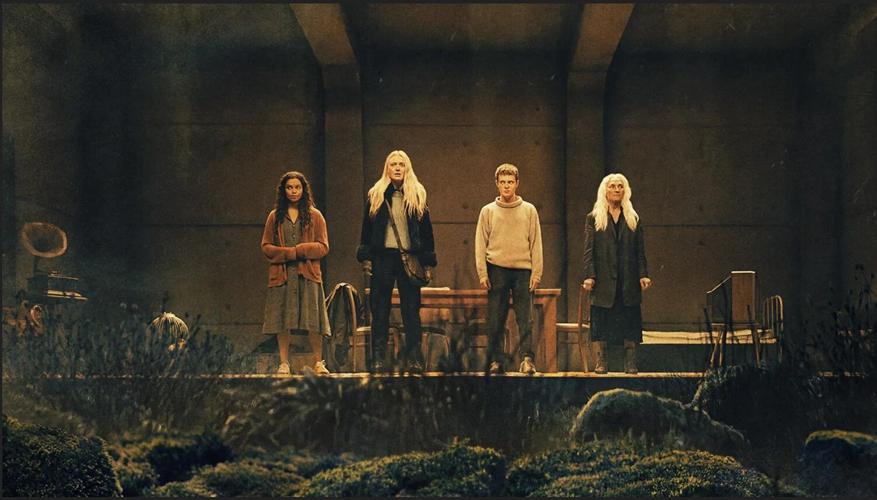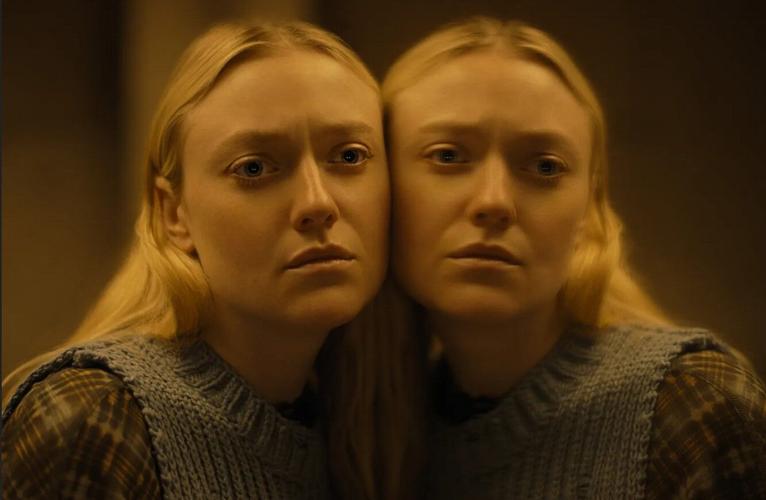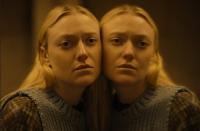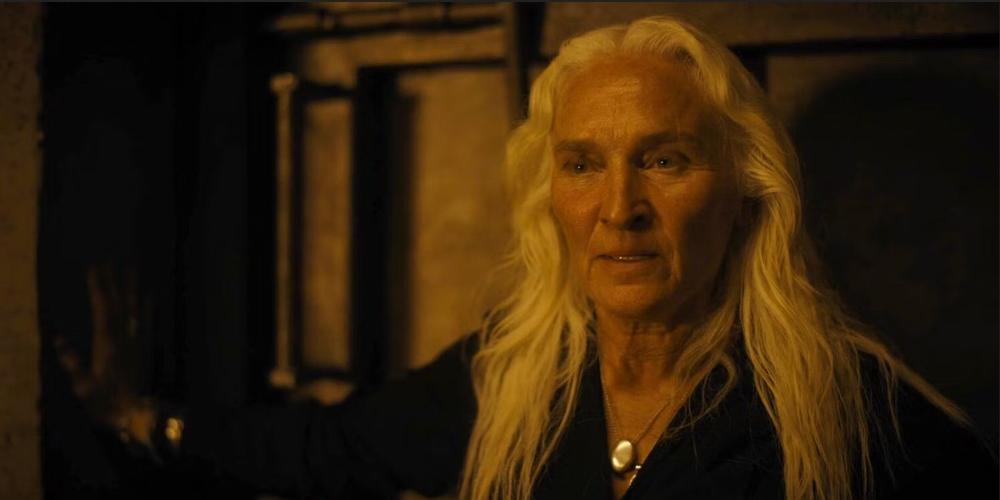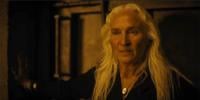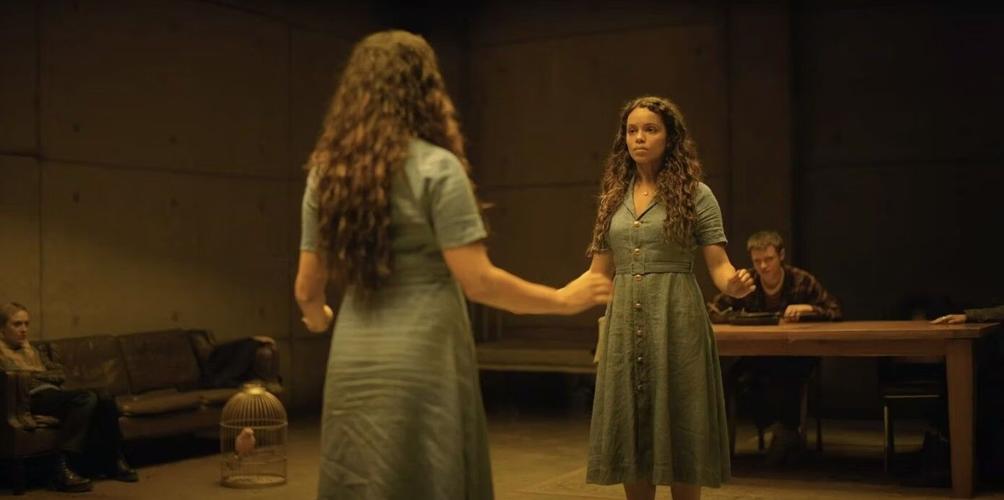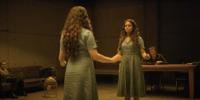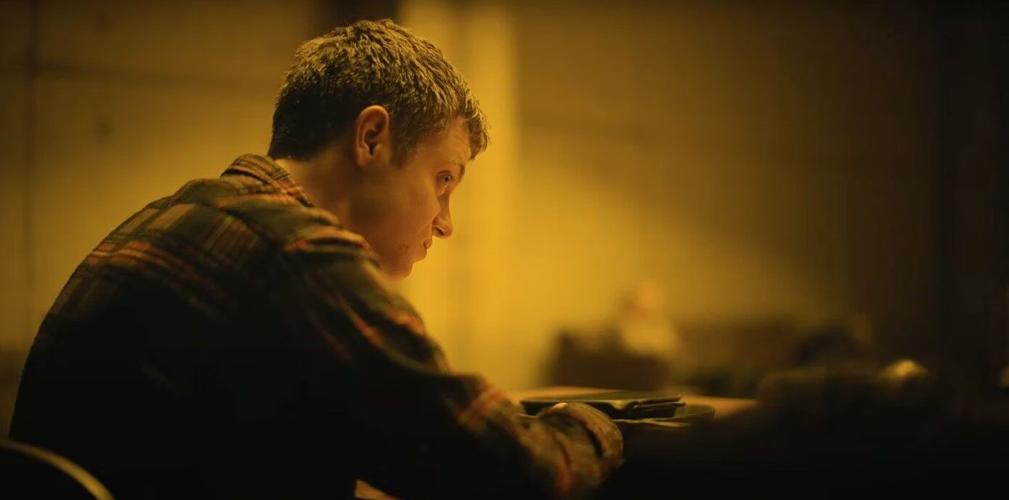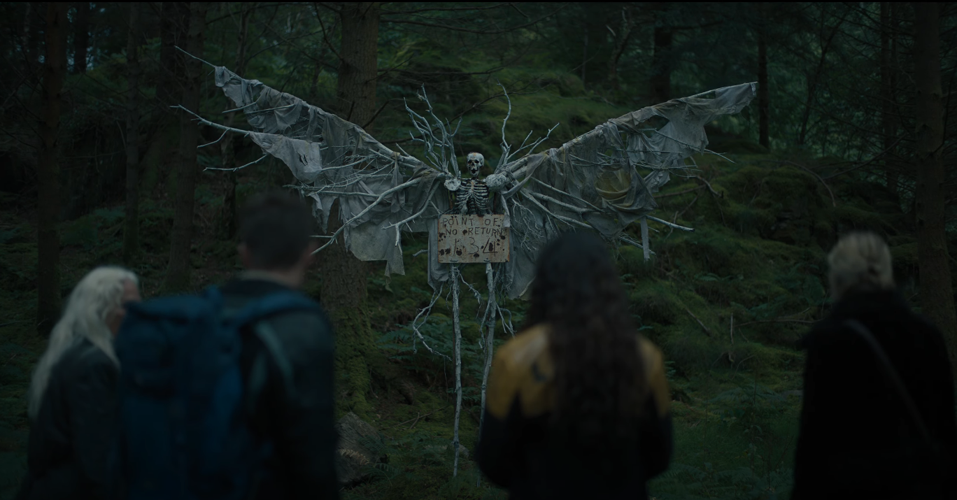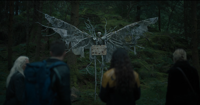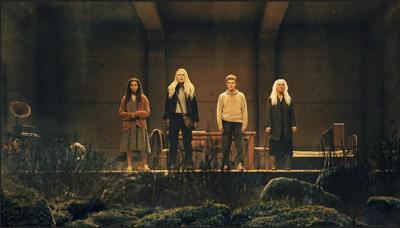Ishana Night Shyamalan is the daughter of M. Night Shyamalan, the Oscar-nominated filmmaker of The Sixth Sense (1999). She has worked on several of her father's projects and has clearly learned a lot from her father. Even though this is an adaptation of Irish author, A. M. Shine's novel, it feels as if it was a story, concocted by M. Night Shyamalan. At times, I thought I was watching his film The Village (2004). At other times, I thought I was watching his film Split (2016). At other times, I thought I was watching his film Old (2021) and finally, at times, I thought I was watching his recent film Knock at the Cabin (2023). It's as if she absorbed her father's films or has become his best student.
There are a lot of good things and bad things about her father's films that we've seen over the past 20 years, since Ishana Shyamalan was born. One of the bad things is the dependency on a twist ending, a dependency that can often times be to the detriment of the narrative. Shyamalan is good at coming up with intriguing premises, ones for horror enthusiasts to enjoy. Yet, those premises often get undermined due to the fact that he needs to have some kind of twist ending to re-contextualize what you just saw. Obviously, he hit a home-run with The Sixth Sense, which had the mother of all twist endings. For a long time, Shyamalan kept chasing that high of trying to concoct a twist ending for every film, trying to top himself each time and again often did so at the expense of narrative cohesion or sense.

Because I figured that his daughter would likely fall victim to the same thing, I was on the hunt for what the twist could be. It's not difficult to guess what the twist is. It's actually telegraphed and more obvious here than even in her father's least. Again, it's one of those instances that once the twist is revealed in the last act, it makes you start to question everything you've seen. Yet, in The Sixth Sense, those questions go to the cleverness of how M. Night Shyamalan crafted the trick. In this film, as in many of M. Night Shyamalan's most recent work, the questions go to how dumb or illogical the construction of the narrative ended up being and how the narrative was constructed simply to arrive at a twist rather than make any sense as to how the characters are supposed to behave or what their motivations actually are.
Dakota Fanning (The Equalizer 3 and War of the Worlds) stars as Mina, an American blonde living in Dublin, Ireland. She works at a pet store and seems pretty bored with her job. At night, she'll go out to clubs or bars, pretending to be a brunette named "Caroline." She literally will put on a dark-colored wig and dress provocatively or different than she normally does when she goes out at night. She'll talk to random men, but it's not sure if she goes home with any of them and she doesn't seem to have any other friends. This behavior and this status in her life seems to be the result of the fact that, as she says, her mother died 15 years ago. We don't immediately learn the circumstances of that death, but clearly she harbors some kind of lasting grief or trauma from the loss of her mother. One day, her boss sends her on an errand where she has to deliver a bird all the way across the country. For some reason that is never explained, she drives off road in her little hatchback and gets lost in a forest.

Olwen Fouéré (Tarot and Texas Chainsaw Massacre) co-stars as Madeline, a middle-aged woman with long, white flowing hair and a stern, authorial presence who finds Mina and takes her back to a cabin in the woods. The cabin is called "the coop" and one of its walls is made of one-way glass. Madeline tells Mina that after sunset, she can't leave the cabin because there are monsters outside that only come out at night. The monsters seem to operate either like vampires or the creatures from Pitch Black (2000). The idea of people being trapped to one location, specifically a wooded area, and not venturing out at night for fear of monsters was the premise of Shyamalan's The Village. The idea of people being trapped and not being able to leave for fear of anything bad happening at all was also the premise of Shyamalan's Old.
As the film progressed, one wonders if this film will go the way of The Village where there's some kind of gaslighting situation or go the way of Old where there's a real supernatural threat to overcome. Regardless, the majority of the film is Mina and Madeline confined to this one cabin where the point is to build tension, horror or some kind of thrills. Unfortunately, I'm not sure Ishana Shyamalan accomplishes any of those things. Her father was able to accomplish such a feat in his film Signs (2002), which built to a sequence where a group of characters where confined to a house and to a basement. Signs built tension and thrills because it had properly developed or even established its characters. This film introduces us to two additional characters, but it doesn't properly develop or establish them, as to make us care or be invested too much into them. They simply felt like "red shirts" to coin a phrase, popularized by the TV series Star Trek (1966) as characters who are literally throwaway or who exist solely to be killed.

Georgina Campbell (Bird Box Barcelona and Barbarian) plays Ciara, a biracial woman probably around Mina's age. The only thing we learn about her is that she likes to dance and she has a boyfriend who went missing shortly after they became trapped in the forest and taken to the cabin. Beyond that, she's not really developed much more. There is a moment where we learn that she has a favorite book or at least a book that she's reading that's supposed to mean something to her, but we never actually learn what that book is. She claims to have been trapped at the cabin for months, but the film never makes us feel the exact toll that it's had on her.
Oliver Finnegan (We Are Lady Parts and Man in an Orange Shirt) rounds out the cast as Daniel, a young man also around Mina's age. He's able to do some hunting, but other than that, we don't learn much more about him either. Again, he's not developed. He's just a red shirt. At first, it seems as if he's going to be the trouble-maker character who simply becomes an agent of chaos who really challenges things, even after Mina attempts to do so but resigns to this weird fate. That fate is that everyone in the cabin has to stand in front of the wall that's made of one-way glass and allow the monsters whom they can't see to stare and study them. Yet, Daniel literally just becomes a red shirt or fodder for this film's all-male body count. He's a throwaway. We don't care about him, nor anyone else here.

The aspect of the monsters staring at the people inside the cabin in order to study them is an interesting concept. There's also a reality television aspect that this film introduces and sets up for a payoff that never comes. We think that this film is going to be a critique or perhaps a horrific mocking of the tropes endemic of reality television. Yet, that critique or mocking never comes to pass in any way that was obvious to me. It's a thematic undercurrent perhaps that Ishana Shyamalan never fully engages. This film never becomes the social experiment or social perversion that reality TV has become, so I'm not sure what the point of introducing it was.
Spoiler alert! Spoiler alert! Spoiler alert!
What we learn is that the monsters outside the cabin are shapeshifters or changelings. They can change their identity, much in the same way as Mina does when she becomes "Caroline." Madeline refers to them as fairies. These fairies are watching the people trapped inside the cabin because they want to study humans in order to mimic them. The film has this theme of mimicry and imitation that it doesn't develop either. The twist at the end is that Madeline is herself a fairy. She took the form of a middle-aged woman who was the wife of a professor who built the cabin in the first place. Even though one of the rules is that these fairies can only come out at night like vampires, Madeline can be outside during the day. As such, she's called a day-walker. Day-walkers are half-fairy and half-human. However, the end of the film is Mina telling Madeline she's half-human. Up until that point, Madeline had seemed like she knew everything there is to know about fairies, but it's odd that she didn't know about the origin of day-walkers, despite the fact that she is one.
There's another rule that the fairies can't leave the forest. They too are trapped there. Madeline wants to leave the forest and apparently, as a day-walker, she's the only one of the magical beings who can. Yet, we're to believe that for months, she's been pretending to be this middle-aged woman essentially wasting time. Madeline didn't need to pretend to be human. She could've just spent her time finding a way out. It's never explained why she needed Mina or other humans in order to escape the forest. It's also revealed that Madeline can literally sprout wings and fly, so if she could fly, why couldn't she have flown above the forest and found a way out? It's again a twist ending that makes everything that came before it seem dumb or illogical.

Rated PG-13 for violence and terror.
Running Time: 1 hr. and 42 mins.
In theaters.

